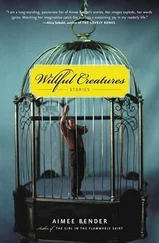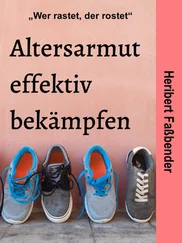As Aviva said goodbye, the baby was cradled on her shoulder. Shana opened her eyes and stared at me. My heart jumped.
— Bye, we said to Aviva and Rabbi Jacob.
— Bye, we said to Joshua and Adam.
— Bye, we said to Shana. We turned and walked out of their townhouse onto the sidewalk, and when I turned around, I saw Shana still looking at me, with her clear bright eyes, and I felt those eyes on me as we went on into the day, under that blazing, empty sky, my family and I, to our own particular uncertainty.
This is what they did: they handed over their IDs and boarding passes, they answered questions about their destinations, they took off their shoes, they put their belongings in the plastic bins, they surrendered liquids over three ounces (or they didn’t and then were sent for questioning), they collected their belongings, they walked through the scanner, they lifted their arms, they stood, frozen, like dancers or criminals, arms raised, while the scanner took its picture, they walked through the scanner. The light, in the general area, was a dim blue. It made everyone look holy or sick.
I was usually the first one they encountered. I stood at a podium and asked them questions. I had been trained in behavior detection. I looked at the brief quirk of an eyebrow, the tension in a lip. I looked at how long their hands scratched their faces. For a short time and with purpose, or longer, for no reason. They told me where they were going.
For what purpose? I asked.
Always, there was the brimming hope, the expectation that we would find someone, the liar, the criminal. There was the hope that we would find someone who was dangerous.
That was our job.
I had worked here for three years.
We had four people in my family. Then we had two. My parents, gone, suddenly, eight years ago, car crash on the way to the opera. My sister did not believe it when I had to tell her. I did. That gave me a power that I did not want.
THE NIGHT MY PARENTS LEFT, MY SISTER AND I SAT IN THE LIVING room while my parents got ready. It was the first time they had ever been to the opera, and our father was, as always, in a hurry, afraid he’d miss a parking place; our mother was slower, buoyed by a sense that she deserved this: not just the opera, but some grand thing to nourish her.
My father got tense when mother wanted to stop and get ice cream before; I suggested a caramel Blizzard at Dairy Queen. It was just an idea I tossed off, unthinking, but she looked at me as though I had seen right inside her and said, “Yes.” My sister wanted to get in the game; she suggested that my mother stop at a department store and buy a new purse. My mother shook her head. It would take too long, my mother said. Maybe tomorrow. My sister deflated, a limp balloon. Our parents walked out of the house, my father rushing ahead, my mother touching his shoulder with her fingertips, the two of them tense and determined, imagining they would walk into a room full of sound.
And they were gone.
In the long tradition of life after death, it seemed that nothing was affixed to anything — refrigerators and dryers hovered over the linoleum where they sat. That included my sister. She was mad that no one had listened to her idea about the purse. There was no proof that ice cream had been the cause of anything. We watched each other as we got the house ready to sell. My sister and I moved through it, deciding who would get what. This clock. Those earrings. That rug. We would negotiate each item with absurd calmness. We each wanted everything, wanted a safe haven for each item. Mostly, we each wanted our parents to walk through the door again.
Then my sister couldn’t take it anymore. She couldn’t hear the sound of my voice; it didn’t say anything that would comfort her. She clapped her hands over her ears and refused to listen.
“You told her to get the ice cream,” she said. She was a small, tense girl who burrowed firmly into any ideas that came to her and then refused to come out. She moved, swiftly, to Malaysia to teach English and hear any language but her own.
I was left here, with no plan for myself; I knew that I was supposed to live. I felt like I was made of sand. No one was watching me, and I had duty to nowhere. But I wanted to be of use. I took a plane to a small, unremarkable city and decided to settle in. I went through security and watched the agents do their work. They stared at the X-ray machine, they patted passengers’ sides and shoulders, they fixed their bright, tense gaze on the crowd. I was drawn to them, beautiful, standing in their dark blue uniforms, scanning the crowds for something suspect, something that you could stop. Their faces were serene, enviably remote with understanding. I wanted to inhabit that knowledge and suspicion. I wanted to stop something, everything. I applied for a job in airport security, and they placed me here.
I began by screening the carry-ons. Looking for the sharp item, the explosive in the luggage. I saw the ghostly outlines of the passengers’ shoes, jewelry, slacks, lingerie, cameras, the harmless items they tried to sneak through, like a bottle of wine or jar of mustard or jam, and the stupid items, like the scissors and knives. I was good at finding things. I was relentless. I wondered if the passengers ever thought of me as the planes lifted, wings cutting brash into the blue sky, as they gripped the plastic arms of their seats and let out a breath, looking down at the earth through the clouds. If they ever believed in some part of themselves that I had, perhaps, kept them safe.
WHEN I WASN’T PEERING AT LUGGAGE, I MADE MY ATTEMPTS TO construct a life. I watched the rest of my crew, who had spouses and coffee tables and cars. We had trained together, six of us, all walking into the multi-purpose room that held the session, all of us sitting under the sickly blue light, watching videos, power points, droning narration describing graphs, gestures, behavior, telling us who might bring harm.
They were the first people I had gotten to know since the accident; I was, just then, vulnerable to kindness, and they were generally kind to me. Getting to know them, I lost the need to meet anyone else. Also, each one reminded me of a member of my family. Lester had dark, spongy, lichen-like hair, the same texture as my father’s. Deanne walked briskly, like my sister did when she was planning some sort of coup. Joanne sometimes squeezed my shoulder the way my mother once did. It was as though my family had, like spies, slipped under their skin. We spent our days standing in the bluish airport security area, but between flight times, we became friends.
Each month brought some new announcement. Lester was engaged. Deanne was pregnant. Joanne’s son was graduating from college. There were showers, for brides, babies, there were cards circulated and donations taken for gifts. There were consultations about renovations; there were suggestions for mechanics and schools and what sort of covered dish to bring to church. Someone would drop some groceries by when I was sick, or lend me gardening tools, or help me fix my TV. There was a general sense of accumulation that was dumbfounding and strange and sweet.
MY APARTMENT HAD A BALCONY WITH A FEW POTS OF ROSES ON IT. I tended them; I bought frozen food and defrosted it for dinner; I watched comedies at night on TV. I had tried, a few times, to make inroads into the world of love, gone out with men whom I chatted with on the Internet. I had met a few of them, sat across from them in restaurants; they were desperate to be liked, the ones I met, and their chattiness about their virtues was depleting. Maybe that was why I didn’t want to go out with any of them more than once.
My fellow crew members were the ones I knew. They had staggered into the airport terminal from their own disasters, of various ilk: bad marriages, drug-addled kids, tumors, depressions, embezzling relatives, early deaths, the rest. We all said I’m sorry to each other; everyone had an individual mountain to scale. That was it. We were here to guard others. I felt useful when I stood with my crew at the security gate — that was what pulled me through my day, that sense of usefulness. I was grateful for it.
Читать дальше












